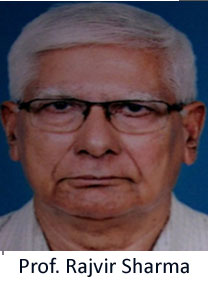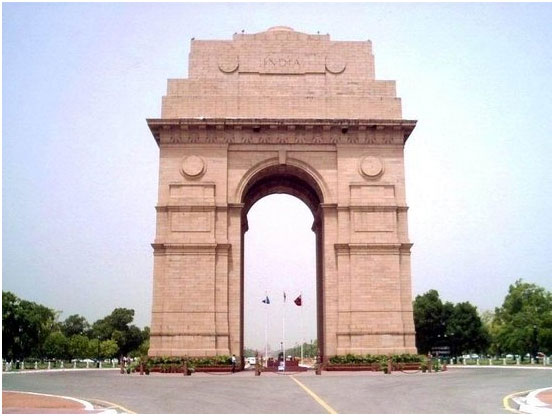
Democracy is seen as the best of all systems of government. It is a system that enables people to realize their best potentials and aspirations as well. It promotes equity, equality, justice and freedom, the most cherished values of a civilized society. It is a system that aims at ensuring fraternity, brotherhood and commonality of concerns for a responsive and responsible governance and government based on debates, dialogues, discussions and critiques relating to the governmental decisions and policies and their operations. To serve these critical democratic goals, an architecture determined constitutionally is put in place.
Besides the Legislature, Executive and independent Judiciary, political parties, free press and a civil society are the other vanguards of the societal interests. But what if the constitutional mechanisms and political processes are sought to be maneuvered as tools of selfish political ends especially by the practitioners of the political system that is democracy?
In a democratic polity, opposition is an integral part of the governing process. It is supposed to discharge a crucial function of warning the government on issues of national and international issues as well as giving suggestions and correctives that in its opinion were necessary for an effective and efficient outcome. It’s a check over a hasty and arbitrary rulemaking and rule application. It is both a brake on the anti-people decisions of the government as well as a source of support for the good the government was doing for the nation and the society. The power games are supposed to be played as per rules of a democratic framework. But what when the opposition falls prey to narrow/petty power politics without bothering for fall out of their actions and decisions with reference to the unity and integrity of the nation and the society on one side and democracy itself on the other?

Arguably, the agitations, demonstrations and movements are the legitimate weapons in the hands of the parties and the people, the use of violence and causing damage to the life and property of the country can hardly be condoned in the name of democratic rights. There are cases aplenty when the reservation demanding agitations were turned into loot, arson, rape and what not like by Jats in Haryana, Hardik Patel led Patidars/Patels in Gujarat or Gujjars in Rajasthan or latest by Marathas in Maharashtra.
May be the opposition parties get a few additional votes, and that is also not certain, at the elections to the Assembly or to the LokSabha, but the cost to nation and Indian society is very heavy and lasting. The strife and stresses manufactured for these votes are against the long-term national goals of achieving complete or near complete social harmony guided by feelings of fraternity, mutual goodwill,love and compassion for all by all. Such political engagement and behaviors would compromise democracy and might pave the way for authoritarian actions with social support.
All political parties including the ruling and opposition have an onerous responsibility to spin that thread of social unity by acting as mature and accountable political class instead of provoking or cooking divisions leading to, may be, a permanent chasm between castes, communities etc ultimately proving detrimental to the national cause. Even criticism of the government must not be based on a self-written script, but on valid sustainable grounds. Post truth politics might weaken peoples’ faith in the ability of the system to address their problems or grievances.
Press, the fourth pillar of the government,as often described, and an important safeguard of democracy, would compromise democracy if it involves in acts of misinformation, biases, and prejudices against the government or opposition or involves in spreading fake and false news wrongly impacting the minds, attitudes and approaches of the stakeholders in democratic governance.
Thorough research and enquiry is imperative on its part before airing any news or analysis with deep implications- social, economic, political or cultural. It is worth our memory that press is a double edged weapon so far as democracy is concerned. In the technology driven society, it is furthermore necessary for the media to be cautious and discharge the role of the protector of the truth rather than becoming a victim of post truth machinations. The fast track information channels and the ideas and messages generated there on may further damage the cause of democracy.
One can note the effects of Whats App or twitter and so on like the one which we noted in case of a violent mobilization of Dalits in April this year. The heinous crimes like rape or mob lynching deserving serious attention of the nation but they should be seen more as a law and order issue rather than viewing them with religious or caste lenses. The press shall be within its right to not only expose the failures of the state to provide safety, security and dignity to the citizens and hold it to account, but it shall be doing great disservice to the same section of the society that they pretend to defend. Furthermore, it might have counter effects if the charges leveled by the press prove wrong in investigation.
Let me come to the judiciary. It’s a truism that judiciary is the umbrella that might save people, especially the weak, from the onslaughts and any excesses of the state. The fundamental democratic and constitutional values can also be upheld by the free and fair judiciary only. But the kind of judicial behavior which the country has been a witness to in the recent past, does not augur well for democracy.
The politicization of judiciary by acts like the press conference held by the four senior judges of the Supreme Court signaled its temptation to fall prey to populism and politics. Similarly, the judiciary has to confine itself to the interpretation of laws and the constitutional provisions and must refrain from making populist with political ramifications observation/comments while hearing a case. Otherwise, the time is not far off when people would start questioning the judicial intentions and that would be the saddest day for democracy.
To conclude, every organ of the government as well as the other political and social actors are to play their due role without overtly or covertly damaging the political trust and without compromising democracy for immediate political gains.
(Professor Rajvir Sharma is a senior political scientist. The views expressed are personal)